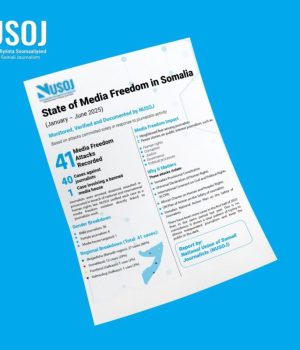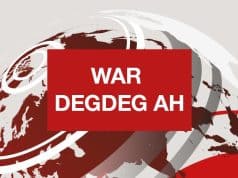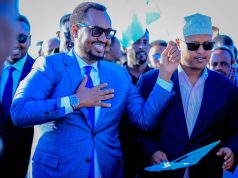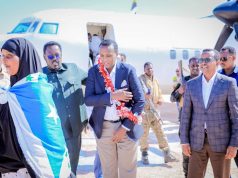Of the 41 documented violations, 27 occurred in Mogadishu, making it by far the most dangerous location for journalists during this period. In March, April and May, journalists in Mogadishu were specifically targeted by both the Somali Federal Police and agents of the National Intelligence and Security Agency (NISA).
Their actions formed part of a broader and ongoing crackdown on the media by state security forces. In many cases, officers appeared to be acting on their own initiative, eager to prove loyalty to political leaders by flexing their authority on journalists
The national political leadership must rein in the commanders of the security forces who are repressing journalists on their own initiative, pretending to act in the interests of their political superiors when, in reality, no such orders were given. Their actions are not helping anyone. Instead of serving their political superiors, they are creating bigger problems,” said Osman.
Somaliland followed with 12 recorded attacks on journalists, a number that remained high even after the election of a new government. This evidence clearly shows that a change in leadership has not brought any meaningful improvement in the treatment of media freedom. Puntland and Galmudug each reported one case, further confirming that these violations are not confined to a single region. The problem is widespread and no part of Somalia can be considered safe for journalists who dare to speak the truth, even if specific violations were not documented in this report.
Of the 40 journalists who were attacked during this period, 36 were male and 4 were female. In addition to these individual cases, one media house was completely banned from operating. These numbers highlight a harsh and troubling reality: regardless of gender, journalists in Somalia face serious risks simply for doing their jobs.
NUSOJ urges Somali authorities at both federal and regional levels to act without delay and bring an end to the hostility directed at the media. Journalists must be protected, not punished. Those who harass, detain, or threaten media workers must be held accountable and the right to report must be upheld countrywide.
“This is not just a crisis for the media. It is a crisis for Somalia,” said Osman. “You cannot build peace, justice or democracy while silencing the people who bring the truth to the public. We are not asking for favours. We are demanding the rights that are already protected by law. Journalism is not a crime. It is a public duty that serves the entire society.”
Somalia Sees Sharp Rise in Media Freedom Attacks Over Past Six Months, Says NUSOJ








